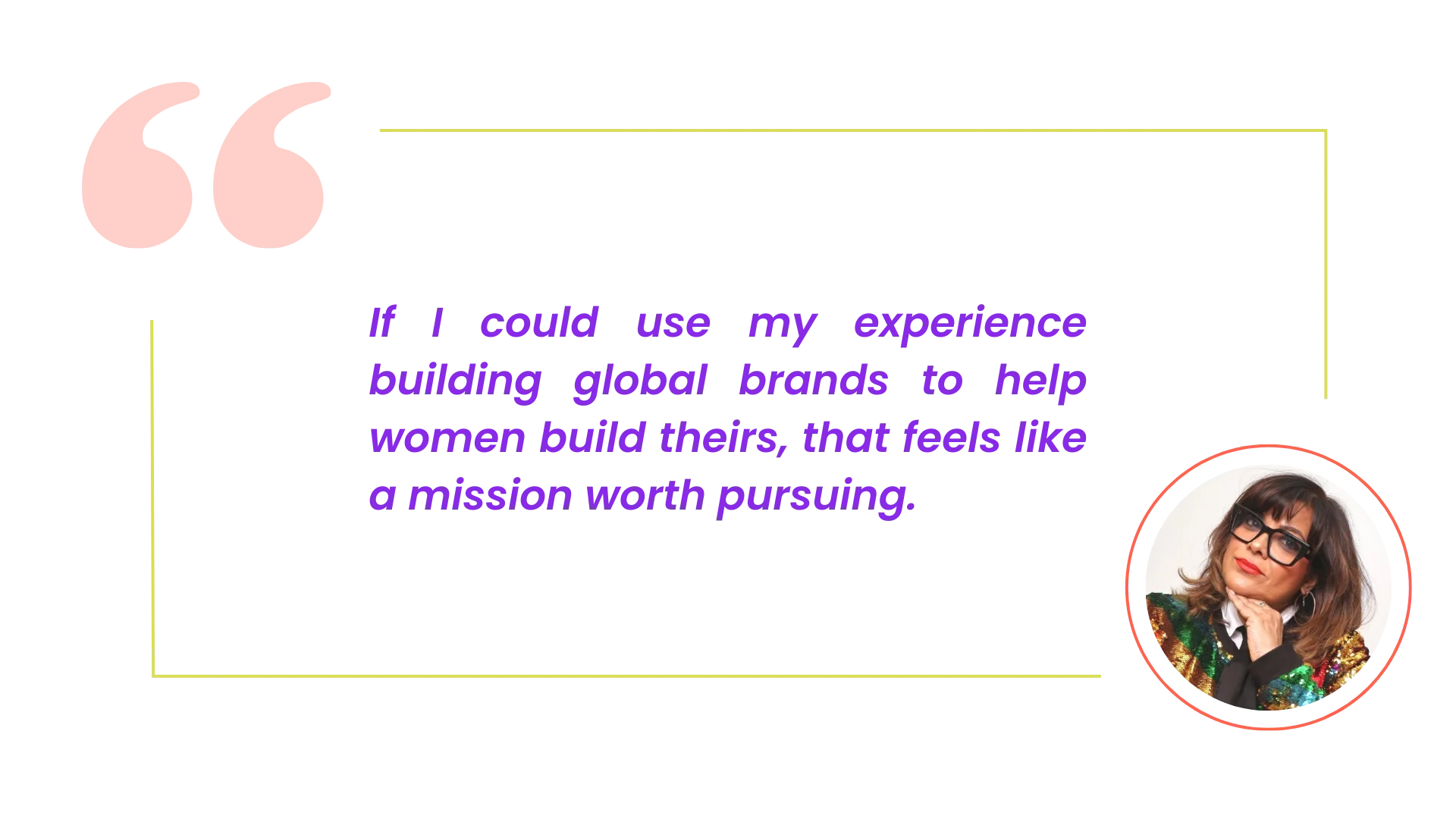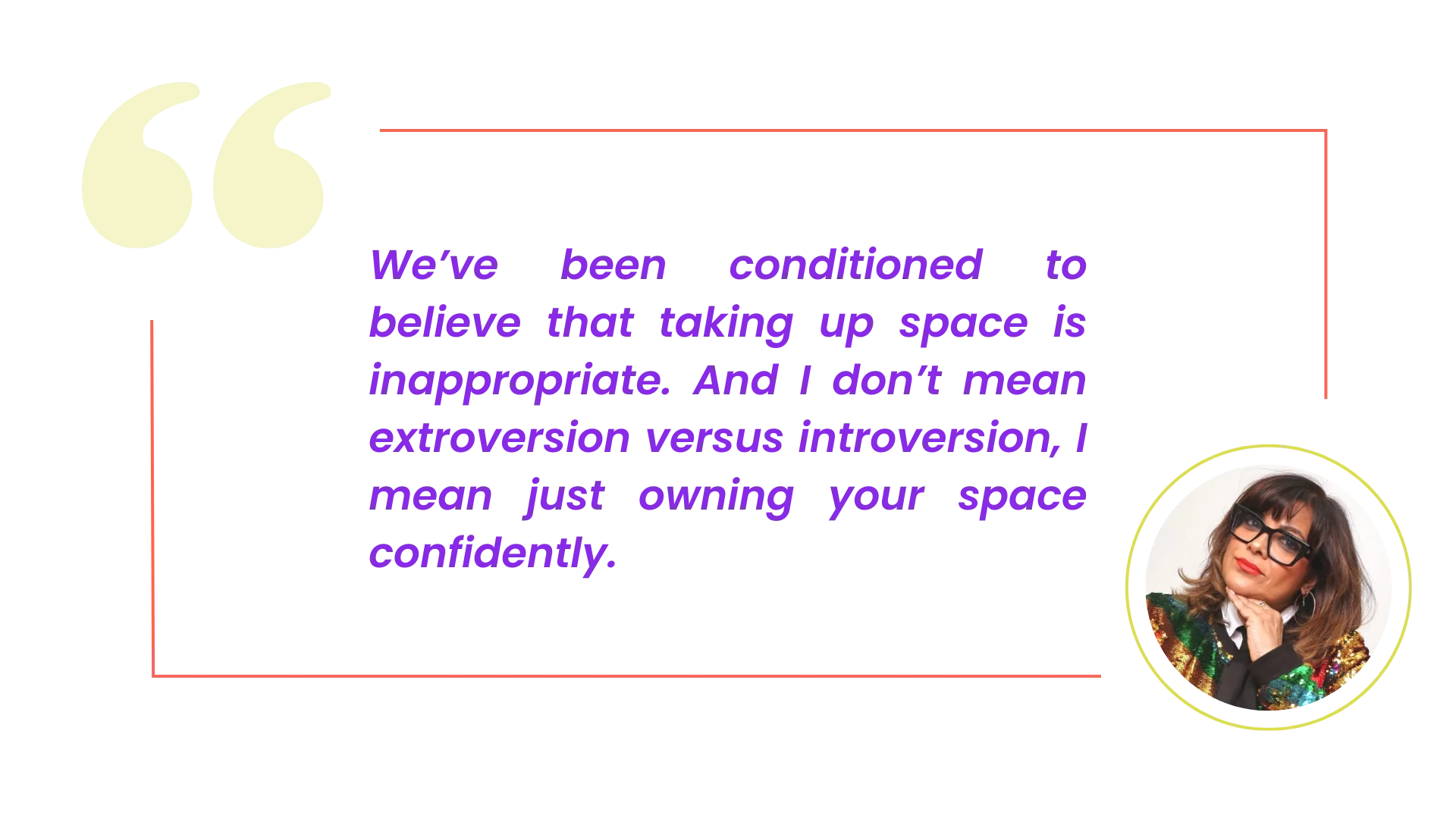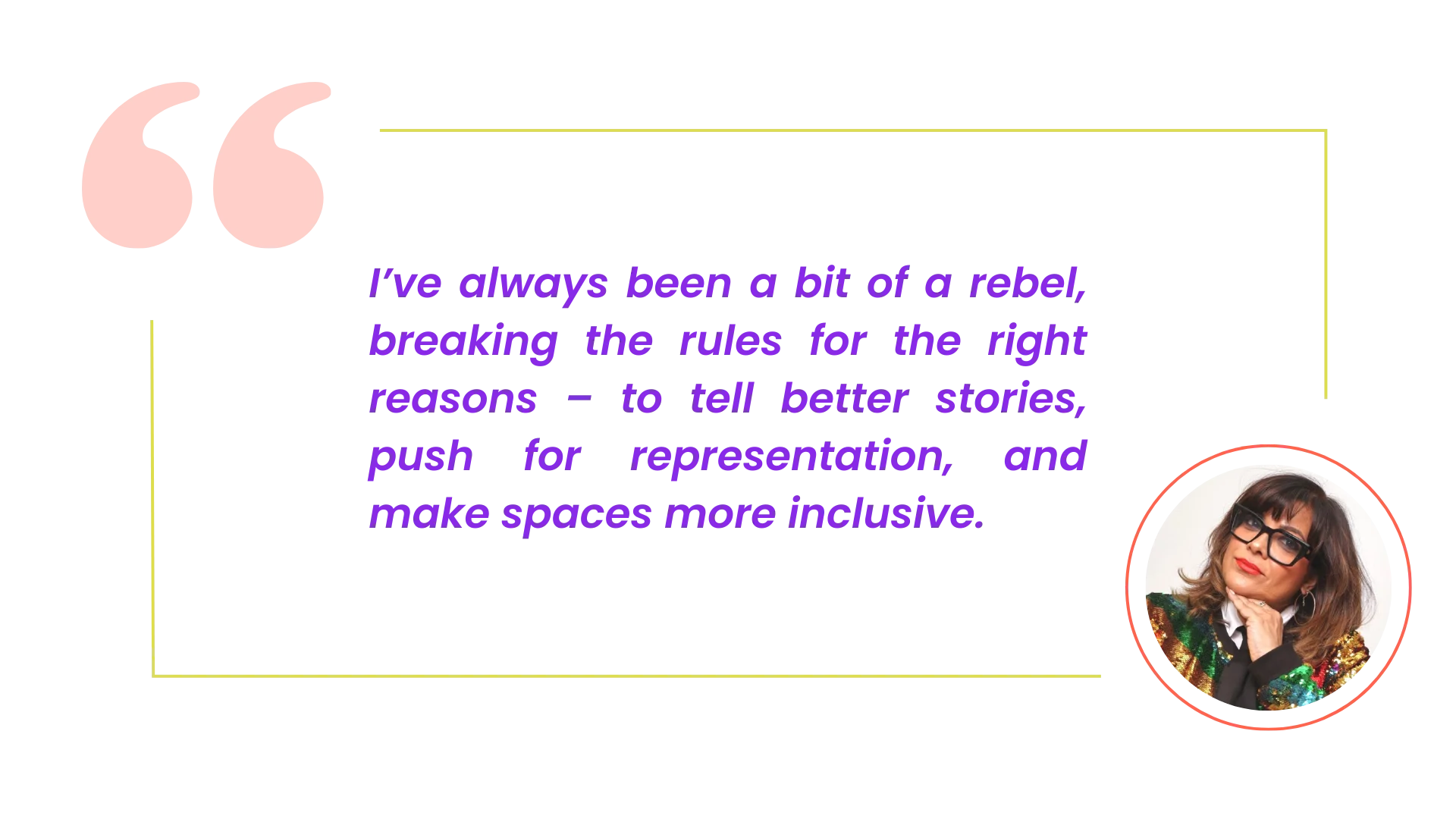From Google to Glittersphere: How Nishma Patel Robb Empowers Women Through Visibility
11 Sept, 20256-7 minsFrom the outside, Nishma Patel Robb’s career looks like a highlight reel: senior leadership ...

From the outside, Nishma Patel Robb’s career looks like a highlight reel: senior leadership roles, industry accolades, a reputation as one of marketing’s most fearless voices. But behind that story is something even more compelling – Nishma’s refusal to play by the unspoken rules of corporate life.
After a 30-year career in media and advertising, including a 10-year stint at Google managing their brand reputation and launching YouTube in the UK, she noticed a pattern she couldn’t ignore: hard work alone wasn’t enough to get noticed. The playing field was uneven, and visibility was a necessity, not an advantage.
So she launched Glittersphere: a platform, movement and community designed to take women from invisible to unmissable. It’s about personal brand, influence, networking, and unapologetic visibility, whether that means landing a promotion, pivoting your career, raising investment, or being heard in a room where you were once ignored.
In this conversation, Nishma talks about why personal branding isn’t bragging, the fear that keeps women out of the spotlight, how fun might just be the most underrated force in business today, and why she believes the future of leadership lies in authentic intelligence – a trait no algorithm can replicate.
Hey Nishma! Can you tell us a bit about yourself and what Glittersphere is all about?
I’m Nishma Patel Robb, Founder and Chief Sparkle Officer at Glittersphere. Glittersphere is both a platform and a movement designed to help women become more visible. It’s about building personal brands, creating influence, and helping women succeed, whether that’s landing a new role, changing careers, securing a promotion, raising investment, or growing a business. The common thread is visibility. That’s what helps women stand out, get noticed, and make their mark.

What inspired you to launch Glittersphere?
It really came from my own journey. I’ve always loved the intersection of technology, culture, and creativity, but over my 30-year career in media, spanning from analogue to AI, I was often the only woman in the room, the only person of colour, and sometimes the youngest too. I saw firsthand how uneven the playing field was and how much groupthink dominated decision-making. Early on, I discovered I was paid significantly less than a male peer doing the same role. That was my wake-up call: this isn’t fair, and it isn’t equal.
Over the years, I became passionate about creating change. I’ve always been a bit of a rebel, breaking the rules for the right reasons – to tell better stories, push for representation, and make spaces more inclusive. I truly believe stories change the world. When you shift perception, when you educate or entertain, you connect on a deeper level. And in an age of AI and automation, authentic human connection is the ultimate differentiator.
Today, more than ever, personal brand matters. People don’t trust institutions anymore; they trust people. So standing out isn’t just a nice-to-have; it’s essential. If I can use my experience building global brands to help women build theirs, that feels like a mission worth pursuing. We help them craft their story, build confidence and show up unapologetically.
We run events like NishTalks, open up networks and create spaces where women can reinvent themselves without apology. Now, we’re about to launch the UK’s first female-led, female-produced podcast network. The world needs more stories told through a female lens. If we want to normalise nuance and show women they can live and work on their own terms, we need to amplify those voices. That’s what Glittersphere is all about.
I love that you coined this term ‘the other AI’, meaning Authentic Intelligence, as a superpower for women leaders. What made you believe that was the missing piece?
It’s not just for women, but I do think women have an outsized advantage when it comes to authentic intelligence. This idea really came from my observations during my last few years at Google, working on AI.
Artificial intelligence is all about patterns. It thrives on predictability and repeatability. That’s its purpose: to deliver answers based on what it predicts will happen next. It’s pattern-led by design.
Human beings, on the other hand, are the opposite of repeatable. We’re about reinvention. Our authenticity is rooted in nuance – the lived experiences, perspectives, quirks, and emotions that make each of us unique. That’s a superpower.
As much as I love AI – and I do, I want everyone to learn and master it – I believe the real magic happens when we combine AI with the other AI: Authentic Intelligence. That’s what creates connection, innovation, and future success.
Women are naturally strong at tuning into their authentic selves, but historically, they haven’t always been empowered to share that side openly or leverage it as a strength. Learning to harness authentic intelligence takes time and intention. It’s about being deeply in touch with who you are, and then using that to connect, lead and build trust.
AI will give us efficiency and effectiveness, but authentic intelligence is what will create sustainability, loyalty and genuine connection. That’s where I see the future of leadership.

Why do you think women, in particular, can be so shy about stepping into the spotlight, and how do we overcome that?
Fear. Fear of judgment and fear of failure.
The fear of judgment is deeply ingrained in us. Hundreds of years of social conditioning told women to stay small. Don’t be too loud. Don’t be too nosy. Be polite. We’ve been conditioned to believe that taking up space is inappropriate. And I don’t mean extroversion versus introversion, I mean just owning your space confidently.
Then there’s judgment from other women. Historically, women have been pitted against each other because of scarcity. For so long, there was only ever one seat at the table. If you didn’t get it, that was it, so we learnt not to share the spotlight. That’s changing, but the conditioning runs deep.
And then there’s the fear of failure. For women, the stakes often feel so high that if we fail once, that’s our one shot gone. It makes putting yourself out there feel terrifying, sometimes even paralysing.
One of the easiest ways to start overcoming that fear is through generosity. Celebrate someone else’s achievement. When you practice amplifying others, it builds your own confidence muscle to eventually do the same for yourself.
When it comes to building a personal brand, a lot of people feel like it’s self-promotional or even inauthentic. How do you reframe that for someone who struggles with putting themselves out there?
The simplest way is to ask yourself: Why do I want someone to know this? I always say, if there isn’t a gift for someone at the end of it, then why share it?
For example, if you’ve just been promoted, you might feel awkward posting about it. But what if you frame it as ‘here’s what I did to get here, and maybe it will help someone else.’ That makes it useful, generous, even inspiring. Or maybe you share it because you want to thank the people who helped you. That’s okay too.
What feels uncomfortable is when self-promotion is empty. If it’s just ‘look at me,’ there’s no value in it for anyone else. But when it’s honest and purposeful – when you tell the whole story, not just the shiny ending – it stops being bragging and starts being generous.
Conditioning is a big part of why things can feel like bragging. We’ve been told since we were children not to show off. But the reality is, ‘showing off’ is just marketing yourself. Gone are the days when doing a good job was enough to get noticed. Actually, those days never existed. That was a myth. People get opportunities for all sorts of reasons that have nothing to do with work ethic.
So why let someone else tell your story? They’ll never tell it as well as you will. Take control of how you want to be seen, respected and remembered. If you don’t, someone else will fill in the gaps, and it won’t be your version.

I love that Glittersphere is your ‘sparkly rebellion.’ What makes it different from other networking groups?
First and foremost, fun! So many groups feel painfully worthy. Important, yes, but where’s the joy? We’re all more effective when we’re happy, so I wanted to create something that felt light, irreverent, and full of energy.
The second big difference is the ‘so what’. Many networks stop at meeting people. I wanted to go further. At Glittersphere, you walk away with something tangible: a stronger personal brand, better visibility, deeper connections that actually move the needle for you.
It’s also about true comfort. I wanted a space where no one feels outside and judged. You can be yourself – fully yourself – and still be taken seriously. That’s rare.
And finally, it’s action-based. That’s why we do things like NishTalks – my take on TED Talks meets Studio 54. It’s about practising storytelling – one of the most important skills we all need – in a safe, supportive, and fun environment. We learn better when we’re enjoying ourselves.
Want to hear more stories like this? Subscribe to The Stack for more insights with founders and leaders shaping the future of their industries.
The bottom line
Hiring contractors shouldn’t create more work. With Propel, you get flexible, on-demand talent while we manage the admin behind the scenes so you can stay focused on what you do best while we take care of the rest – onboarding, contracts, compliance, and payments.
Your contractors get paid on time. You get one invoice.
Curious how we can help your team scale?



